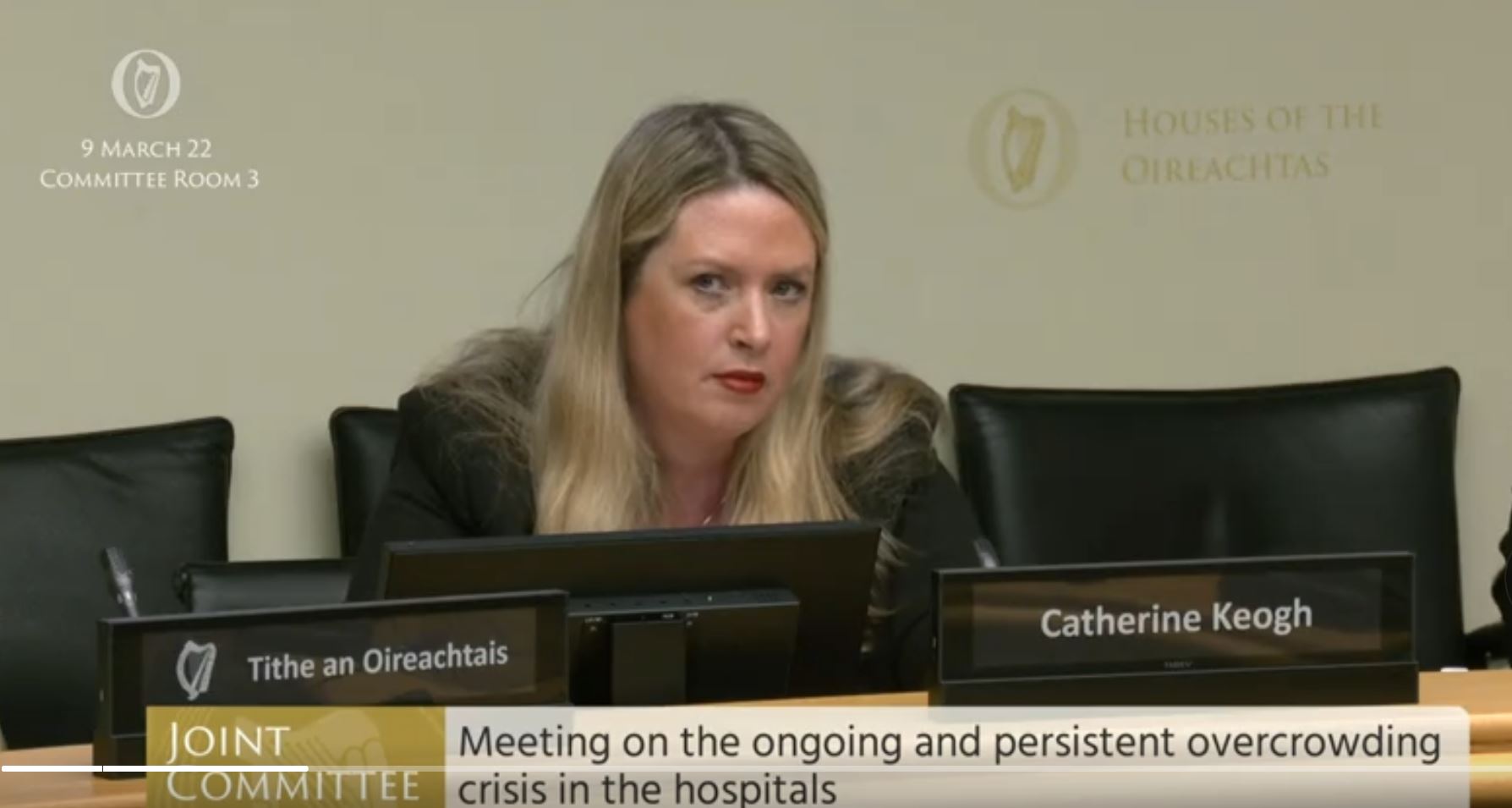Fórsa trade union has told the Oireachtas Health Committee this morning (Wednesday) that the only way to tackle the ongoing and persistent overcrowding crisis in hospitals is to ensure the establishment of 96 new Community Healthcare Networks under the Sláintecare programme.
The union told the committee that this measure, if implemented fully and without delay, will allow the health service to provide appropriate care, with health and social care professionals delivering the full range of necessary services in the community.
The union said a necessary shift of care delivery from acute hospitals into the community is vital, and that the only way to avoid hospital admissions, and reduce pressure on acute hospitals, is through initiatives that will see care delivered within the community.
Fórsa also highlighted need to transition to public-only contracts for hospital consultants and State-employed general practitioners, and a properly resourced Home Support Service.
A new report commissioned by Fórsa and produced by the TASC think-tank included recommendations on greater integration of government agencies such as home care and health services.
The Oireachtas Committee met with health unions this morning to discuss the ongoing and persistent overcrowding crisis in hospitals.
Fórsa represents more 30,000 health workers working in hospitals, community health system, residential and social care settings, as well as at the corporate centre of health service planning and delivery, and include health and social care professionals, clerical, administrative, management and technical staff.
Fórsa assistant general secretary Catherine Keogh said: “The public discourse around our health services is frequently driven by headlines alerting us all to the hazards of growing waiting lists and the numbers of patients on trolleys.
“The discourse is, consequently, always stuck in crisis mode, and this contributes to a wider sense of understandable anxiety about access to healthcare when people need it. Lists and trolley numbers are useful statistical information, because they illustrate the symptoms of an underlying problem.
The only way to avoid hospital admissions and reduce pressure on acute hospitals is through initiatives that will see care delivered within the community.
“It’s Fórsa’s view that the ongoing and persistent overcrowding crisis in our hospitals – and the underlying problems that drive it – can only be tackled by ensuring that Sláintecare, and in particular, the establishment of the 96 new Community Healthcare Networks,” she said.
“We believe the answer to the ongoing and persistent overcrowding crisis in our hospitals is clear. The Sláintecare report and subsequent implementation plans provide both a durable solution and the roadmap to same. Sláintecare has cross party support. Sláintecare has citizens’ support. Sláintecare has workers’ support. We would ask that you consider then what are the real inhibitors to its implementation? Why five years since the publication of the initial report is there still the same unrelenting pressures on our hospitals and on our members working in those hospitals?” she said.
Catherine said one of the eight fundamental principles of the 2017 Sláintecare Report is that patients should be accessing care at the most appropriate, cost-effective service level, with a strong emphasis on prevention and public health.
Fórsa officials also highlighted seven projects listed to achieve the aim of improving safe, timely access to care, and promoting health and wellbeing included in the recently launched Sláintecare Implementation Strategy & Action Plan (2021-2023).
#OireachtasTV – Watch LIVE as the Joint Committee on Health meets to discuss the ongoing and persistent overcrowding crisis in the hospitals with Representatives from @INMO_IRL @SIPTU @forsa_union_ie @IMO_IRL #seeforyourselfhttps://t.co/EP0QExhuQg https://t.co/ZShkcu2Y6k
— Houses of the Oireachtas – Tithe an Oireachtais (@OireachtasNews) March 9, 2022
The discourse is always stuck in crisis mode and contributes to a wider sense of understandable anxiety about access to healthcare when people need it.
Catherine said: “The Health Service Capacity Review sets out the staffing and physical infrastructure required to meet the Sláintecare waiting time targets and outlines the necessity for the shift of care out of acute hospitals into the community and closer to a person’s home, where safely possible.
“The only way to avoid hospital admissions and reduce pressure on acute hospitals is through initiatives that will see care delivered within the community.” She added that the transition to public-only contracts for hospital consultants and State-employed general practitioners is a necessary one, and that a properly resourced Home Support Service is a necessary to reducing delays in hospital discharges.
“Another ongoing cause of pressure on the hospital system is the existing cultural default position of GP referrals to the acute hospital system. Direct GP referral to community radiology is an example of one of the stated measures to be implemented as part of the Sláintecare implementation plan that would alleviate hospital waiting lists,” she said.
Catherine said Fórsa is unequivocal in its support for the community health intervention and servicing model proposed by the Sláintecare report, and that Fórsa and its members have played a pivotal role in the process which established Community Health Networks. She said the union is currently engaged in the introduction of the Enhanced Community Care Networks (ECCNs).
We believe the answer to the ongoing and persistent overcrowding crisis in our hospitals is clear.
A new report on The Irish State Post-Pandemic, was commissioned by Fórsa and produced by the TASC think-tank was published in February, and included key recommendations on the provision of greater integration of government agencies such as home care and health services.
The Oireachtas Committee meeting took place from 9.30am this morning and can be viewed HERE.

